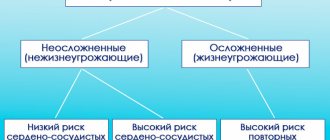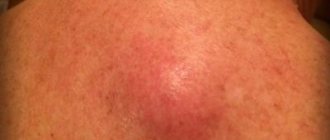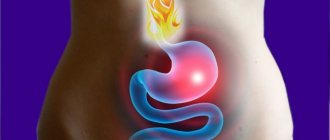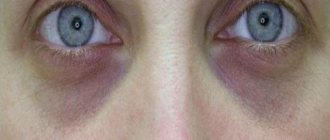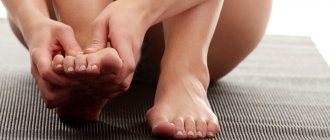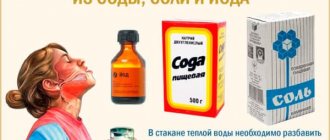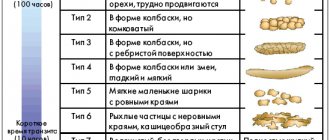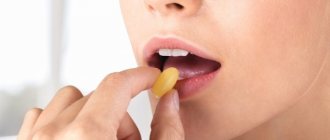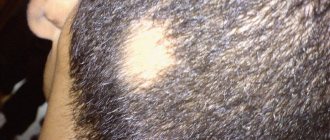When experiencing palpitations, many people, when visiting a cardiologist, would like to know how to quickly lower their heart rate at home with normal, low and high blood pressure. Recommendations for lowering heart rate depending on the state of health and blood pressure are given by Vera Olegovna Chubeiko, Candidate of Medical Sciences, practicing physician in the cardiology department.
Before you begin studying the material, remember the following:
- The cause of this condition may be some kind of disease, without treatment of which it will be possible to normalize the heart rate only temporarily.
- A rapid pulse can be a compensatory reaction of the body, for example, during a fever, and lowering the pulse in such a situation would be a mistake. Therefore, it is better to consult a doctor - a local therapist, a cardiologist, or call an ambulance, where they can simply advise you over the phone and, if necessary, send a team of doctors.
- A person makes his own decisions about how to look after his health. Therefore, our article will contain information on how to lower your heart rate at home, depending on its value, pressure, as well as different methods of treating increased heart rate.
- Self-medication can be dangerous to your health, be careful and be sure to consult your doctor.
Normal heart rate and reasons for its increase
Heart rate (HR) depends on age. Average values for healthy people are shown in the table.
When an adult patient's resting heart rate increases from 90 beats per minute or higher, a diagnosis of tachycardia is made. It occurs with heart disease and for non-cardiac reasons. In the first case it is called:
- angina pectoris, myocardial infarction, post-infarction cardiosclerosis;
- heart failure;
- inflammation (myocarditis, pericarditis, endocarditis);
- heart defects;
- non-inflammatory lesions of the heart muscle (cardiomyopathy).
Extracardiac factors are not always associated with disease. The pulse accelerates when:
- physical activity;
- emotional stress;
- congenital tendency to increase frequency;
- smoking;
- drinking alcoholic beverages and caffeinated drinks;
- hot climate, being in a sauna, hot bath;
- lack of oxygen (stuffy, unventilated room);
- quickly getting out of bed.
The most common causes of tachycardia:
- neurosis;
- vegetative-vascular dystonia;
- increased function of the thyroid gland (thyrotoxicosis), adrenal glands;
- attack of pain (of any origin);
- infection and fever;
- blood loss, anemia;
- a sharp drop in pressure (reflex reaction);
- use of medications - hormones, aminophylline, adrenaline, diuretics, caffeine.
We recommend reading the article about pills for heart palpitations. From it you will learn about the reasons, recommended medications, how to take pills, blood thinners. And here is more about heart palpitations during menopause.
Heart rate 95 – 100 beats
If the pulse is 95 - 100 beats per minute, the cause of this condition may be:
- exercise stress;
- sudden positive or negative emotions;
- lack of sleep;
- fever;
- pregnancy;
- mild anemia;
- diseases of the thyroid gland or lungs;
- hypertension and neurocirculatory dystonia;
- heart failure.
At this heart rate there is no need to worry too much. In itself, a slightly accelerated heartbeat does not harm the myocardium and health in general. Typically, a person worries rather because of an unusual heart rate, and does not experience pronounced complaints.
What to drink when your heart rate is 95–100 per minute to bring it down? The best solution would be to take one of the following sedatives:
- Valerian tincture;
- motherwort tincture;
- peony tincture;
- Novo-passit;
- Corvalol;
- Valocordin.
Medicines
The biologically active substances that make up valerian not only have a sedative effect, but also reduce the pulse. They affect the heart directly, changing its automaticity (ability to produce electrical impulses) and conductivity, thereby reducing the heart rate. The effect is better manifested when applied as a course. Valerian is especially indicated for states of excitement and sleep disturbances, including those due to high heart rate. This medicinal plant is contraindicated only in case of individual intolerance.
An alcoholic tincture of motherwort not only slows down the pulse, but also slightly reduces blood pressure. It is well suited to bring down a high pulse during hysteria, irritability, neurasthenia, and the pathological course of menopause. The drug is also used in the initial stages of hypertension and to slow down the pulse at home in case of hyperthyroidism. Of the side effects, only occasionally an allergic reaction has been noted.
Tincture of evasive peony works well to reduce heart rate. It is especially effective in treating concomitant vascular disorders, for example, hot flashes or, conversely, cold hands and feet. It should not be taken if you are hypersensitive or have severe liver and kidney diseases.
Universal drug Novo-passit , which, in addition to valerian, includes lemon balm, St. John's wort, hops, hawthorn, passionflower, black elderberry, as well as a small amount of guaifenesin. This makes the drug one of the most effective means of helping to quickly bring down a high pulse. It is available in solution and in tablets, and the solution will act faster. Side effects include an allergic reaction.
Corvalol is a drug containing a derivative of valeric acid, phenobarbital and peppermint oil. It is used to quickly reduce the pulse when it increases to 140 per minute, especially in combination with a slight increase in pressure and stabbing pain in the heart area. With frequent heartbeats, a single dose of Corvalol can reach 40 - 50 drops. The drug is contraindicated in case of intolerance, severe liver and kidney diseases, as well as during breastfeeding.
Valocordin drops , unlike Corvalol, do not contain mint oil. All other characteristics of these two drugs are similar.
We list the remaining 9 medications that you can take to quickly reduce high heart rate at home:
- Drops Bromenval.
- Valemidin.
- Valeodicramen.
- Valerianahel (homeopathic).
- Valoserdin.
- Doppelhertz Melissa.
- Cardiovalen.
- Cravaleon.
- Notta (homeopathic).
Also good for lowering heart rate:
- Passidorm solution;
- Passifit syrup;
- Sedoflor tincture.
To consolidate the effect, you can additionally drink tea with lemon balm, sedative collection No. 2 and No. 3, Phytosedan No. 2 and No. 3.
How to calm your pulse at home without resorting to medications? Stopping the load and resting in a reclining position will help here. Usually these measures are enough for the heartbeat to return to normal within 15 to 20 minutes.
Dangerous accompanying symptoms for which it is important to visit a doctor
In healthy people, after the end of the external factor, the pulse quickly returns to normal. Its increase is accompanied by a brief sensation of heartbeat, and shortness of breath occurs during physical activity. If dizziness, fainting, pain in the heart area, and rhythm disturbances are added to these symptoms, then such symptoms are a sign of diseases of the cardiovascular system. Warning signs also include:
- difficulty breathing, attacks of suffocation;
- swelling in the legs;
- heaviness and pain in the right hypochondrium;
- attacks of compression, squeezing behind the sternum, arising from tension and passing at rest;
- low or persistently high blood pressure.
With prolonged tachycardia, the heart muscle wears out and weakens, and blood flow to all internal organs, the brain, and the myocardium itself is disrupted. The contractility of the ventricles and the rhythm of their work decreases. Appears:
- constant fatigue;
- insomnia;
- decreased appetite;
- low performance;
- depression;
- cold extremities;
- decreased volume of urine excreted;
- attacks of dizziness;
- convulsive muscle twitching.
Against the background of tachycardia, all heart diseases have a more severe course and progress faster.
Tachycardia
How to reduce pulse with vagal tests
Reduces elevated heart rate in some cases by performing reflex car tests - by pressing on certain points of the body.
What it is
Pressing on certain points and changes in breathing are called vagal tests. They are aimed at activating the vagus nerve (vagus). It, in turn, helps reduce the influence of sympathetic (stress) impulses on the heart. This method can be effective primarily when the source of increased pulsation is in the sinus node (the pacemaker is normal) and the atria. Vagal tests will not affect ventricular tachycardia.
Options to reduce and normalize frequency
In order to normalize the rhythm of contractions and make the pulse rate lower, you can apply:
- pressure on the pulsation points of the carotid artery (circular movements towards the mandibular angle) - 5 seconds alternately on each side;
- pressing on the inner corners of the eyes simultaneously helps slow down the pulse;
- take a breath and lower your face into the cold water, holding your breath (diver’s reflex);
- press with a spoon, spatula, or finger on the root of the tongue, causing coughing or vomiting;
- inhale, squat down and strain.
When coughing, straining or the gag reflex, the superior vena cava is compressed, blood flow to the heart decreases, to which it reacts by slowing down the heart rate. Activation of the vagus nerve centers with pressure on the eyes and the carotid sinus area in the neck also helps to reduce the heart rate.
Contraindications for increased heart rate
In addition to the fact that vagal tests will not always have a positive result, they are also dangerous if:
- unconscious state of the patient,
- severe pain in the heart,
- low blood pressure,
- weak pulse filling,
- severe cough
- attacks of suffocation.
All these conditions are contraindications, since there is a risk of developing a heart attack or stroke due to decreased blood flow to vital organs. In elderly patients with an unknown diagnosis, vagal tests are not performed.
Causes of high heart rate
Cases of patients visiting medical institutions with complaints of increased heart rate are not uncommon. When classifying an existing symptom, you should understand the difference between pulse height and pulse rate. In the first case, we are talking about the degree of oscillations of the artery walls, in the second - about the number of contractions. A regular high pulse is considered a serious deviation and a sign of the presence of ailments that unite the human motor (heart) and blood vessels.
The reasons for the increase in fluctuations in the walls of the arteries are factors such as:
- tachycardia;
- hypertension;
- vascular atherosclerosis;
- cardiac ischemia;
- pericarditis;
- heart valve pathologies;
- a sharp increase in physical stress on the body (lifting heavy objects, running fast, etc.);
- anemia;
- fever;
- excess weight (obesity);
- fatigue;
- pregnancy;
- alcohol and smoking abuse;
- uncontrolled use of psychostimulant drugs.
How to lower your heart rate without pills using psychological techniques
Without pills or any other medications, you can lower your heart rate if it is caused by nervous tension, excessive coffee or energy drinks; relaxation techniques are used for this:
- concentrate on breathing - count the duration of inhalation and exhalation, inhale for 3 counts and exhale for 4-6 counts (according to sensations), try to use only the stomach without the participation of the chest;
- listen to melodic music;
- lie on your back and alternately relax the muscles of the foot, lower leg, thigh of the right leg, then the left, arms, torso and face;
- look at the candle flame.
Watch the video on how to lower your heart rate:
Reducing heart rate with folk remedies
Folk remedies effectively reduce the pulse if you take into account all the indications and contraindications for herbal medicine, prepare infusions correctly, follow the dosage and undergo a course of treatment. An alternative option is ready-made herbal preparations.
Who can reduce their heart rate with plants?
Herbal medicine is recommended for:
- neurosis, neurocirculatory dystonia;
- overwork, stress;
- menopause;
- anemia;
- past infection;
- overdose of medications, coffee, nicotine.
In case of NCD, a decrease in heart rate with the help of plants is indicated.
Herbs cannot be the main method of treatment for heart diseases: angina pectoris, myocarditis, hypertension, attacks of paroxysmal acceleration of the rhythm, especially ventricular tachycardia (diagnosed by ECG), circulatory failure. They will be ineffective for problems with the thyroid gland and adrenal glands. In these cases, if they are used, then only together with medications.
Herbs for increased heart rate
Plants with the following mechanism of action are used:
- soothing - motherwort, azure blue, passionflower, lavender, peony root, valerian, hop cones, mint leaf, lemon balm;
- slowing down the pulse - hawthorn (fruits and flowers), astragalus, barberry berries, fennel seeds, cardamom.
It is important to prepare herbal medicines correctly and drink the infusion or decoction for at least a month.
For the treatment of tachycardia, a collection is used:
- motherwort herb – 20 g,
- lavender flowers – 20 g,
- hawthorn fruits – 20 g,
- chokeberry berries – 10 g,
- rose hips – 10 g,
- peony root – 10 g,
- hawthorn flowers – 10 g.
The plants are crushed, mixed and stored in a paper bag. To prepare an infusion for increased heart rate, take a tablespoon per 200 ml of boiling water, bring to a boil, then leave in a sealed container for 30 minutes. Strain and drink warm, a third of a glass, half an hour before meals.
Watch the video about the treatment of tachycardia:
Ready herbal extracts
Preparations with a sedative and antiarrhythmic effect have also been prepared based on herbs:
- Novo-passit,
- Persen,
- Menovalen,
- tinctures of motherwort, hawthorn,
- Motherwort forte Evalar,
- Cardiovalen.
Drug therapy
Prescribing medications is inappropriate without identifying the root cause of the pathology. There are a number of drugs that are used to treat paroxysmal tachycardia and arrhythmia. Their systematic use will allow you to forget about a rapid pulse and prevent possible complications of tachycardia:
- B-blockers – reduce the influence of the parasympathetic nervous system, effective in reducing heart rate (Bisoprolol, Atenolol, etc.);
- Ca channel blockers - prevent the transmission of impulses through the ventricles of the heart, thereby reducing the pulse to normal values (Verapamil);
- Cardiac glycosides - directly act on the conduction system of the heart and on the vagus nerve, thereby reducing the pulse (Digoxin, Corglicon, etc.);
- Membrane stabilizing substances - drugs Propafenone, Diphenin, Lidocaine, etc. block ion channels involved in the transmission of the exciting impulse through the heart. This helps reduce your heart rate;
- Sedatives and sedatives (Persen, Valerian, etc.).
It should be noted that antiarrhythmic therapy cannot be used until the type of cardiac arrhythmia is precisely established. Usually this type is determined using an ECG.
For elevated heart rates and high temperatures, treatment involves reducing hyperthermia through physical cooling methods or medications.
How to lower your heart rate at normal blood pressure
Drugs based on:
- hawthorn – tincture, Cardiovalen (camphor, lily of the valley, jaundice);
- belladonna - Drops of Zelenin, Distonin;
- lily of the valley - lily of the valley-valerian.
You can quickly reduce the pulse rate using vagal tests, as well as sedatives if tachycardia occurs after stress (Barboval, Valocordin). For ongoing use, a cardiologist may prescribe medications that will help reduce heart rate without lowering blood pressure. These are drugs containing potassium and magnesium (Panangin, Asparkam), Riboxin, Kratal, Cardioactive Taurine. For more serious rhythm disturbances, Amiodarone is used.
Emergency measures
If you need to act quickly, then the following first aid tips will come in handy to lower your heart rate.
First you need to put the person horizontally. Try to provide as much fresh air as possible. To do this, you need to open all windows and doors. If the person’s body is constrained by clothing, remove the top buttons, for example. It is necessary to immediately call an ambulance to help lower the pulse.
So, in extreme conditions, speed and instant reaction are important to reduce your heart rate. The following effective follow-up algorithm should be used:
- prepare the room as necessary, remove the victim from tight clothing to reduce the pulse;
- Place a piece of gauze, bandage, or cloth, previously soaked in cold water, on the victim’s forehead;
- experts advise the patient to hold his breath; if the procedure is ineffective, repeat it several times to lower the pulse;
- The body needs to drink clean, non-carbonated water. This will help avoid dehydration and lower your heart rate;
- It’s best to limit yourself from stressful situations, don’t get nervous, stay at least a little in a calm atmosphere to lower your heart rate;
- It is also effective to massage the sides of the neck;
- if a person belongs to the middle century category, then experts advise artificially inducing vomiting in order to lower the pulse;
- A mandatory safety measure is to call an ambulance.
How to lower blood pressure and pulse
Most drugs used for tachycardia simultaneously lower blood pressure and pulse:
- beta blockers – Nebil, Atenolol;
- calcium antagonists – Isoptin, Verapamil.
If your heart rate periodically increases, you can lower your blood pressure and heart rate with sedatives. The most proven option is a mixture of tinctures of motherwort, mint, hawthorn, and valerian in equal parts. Take 20-30 drops of the mixture with a small amount of water 3-4 times a day.
High heart pressure (systolic, upper reading) is effectively reduced by a Nifedipine tablet placed under the tongue. At the same time, the heart rate slows down. In all cases of high heart rate and blood pressure, a doctor’s consultation is required.
What to do if you have hypotension and high heart rate
If you feel well, you can use the remedies recommended for normal blood pressure. Often this combination provokes dehydration and overheating. Therefore, you need to drink a glass of warm water or weak tea with the addition of hawthorn tincture.
In case of severe condition (pallor, cold sweat, thready pulse), it is necessary to call an ambulance, and provide the patient with air flow and lay him on a flat surface, giving his legs an elevated position. Self-administration of drugs in such cases can be dangerous.
Tablets to lower heart rate
Reducing the pulse with tablets in case of disruption of the nervous system is carried out using psychotherapeutic techniques, herbal-based sedatives (valerian, Persen) or drugs from the group of tranquilizers (Adaptol, Mebicar).
Before using medications for tachycardia, it is important to compensate for blood loss and dehydration, since most medications that lower the heart rate can severely impair circulation. For high blood pressure use:
| Group of drugs | Drug names |
| Beta blockers | Atenolol, Corvitol, SotaHexal |
| Calcium channel blockers | Diltiazem, Isoptin |
If there are signs of heart failure (swelling, shortness of breath, enlarged liver), then cardiac glycosides (Celanide, Digoxin) are recommended for normal blood pressure.
You need to take the pills until you reach your target levels. For angina pectoris and other heart diseases, it is recommended to maintain the pulse at 55-60 beats per minute, and with vegetative-vascular dystonia and good tolerance, it can reach 75-85 beats.
Methods for lowering heart rate
There are several ways to reduce the number of heartbeats (pulse). The choice of specific techniques should be carried out taking into account the patient’s age, his general condition and the level of blood pressure at the time of increased heart rate. It is necessary to reduce the heart rate regardless of whether this situation is regular or caused by short-term external factors. This can be done with the help of medications, folk remedies or special psychological techniques.
Medicines
Tablets for tachycardia are conventionally divided into three categories - natural, synthetic drugs, antiarrhythmic drugs. It is recommended to take any medications after proper consultation. The first group of drugs eliminates symptoms, and the second helps fight diseases in which the pulse begins to increase.
Drugs that help in solving the question of how to reduce an elevated heart rate:
- "Valerian" (sedative, natural remedy).
- "Persen" (a drug with a sedative effect, has a beneficial effect on the body, pulse).
- “Motherwort” (a powerful sedative medicine based on natural ingredients, normalizes the pulse).
- “Phenobarbital” (a sleeping pill, prescribed by specialists, normalizes sleep and the functioning of the nervous system).
- “Relanium” (a tranquilizer, prescribed by a doctor, taken in the presence of dangerous symptoms, normalizes the pulse to the lower (acceptable) value).
Folk remedies
Examples of alternative medicine recipes to help solve the question of how to relieve a rapid pulse:
- herbal mixture (1 tsp each of lemon balm leaves, valerian root, hops and dill seeds, pour boiling water, leave for 30 minutes, take 100 ml 15 minutes before meals three times a day for two weeks, the product has a calming effect, normalizes heart function);
- a collection of motherwort and calendula (mix in equal quantities, pour boiling water, leave, consume for two weeks before lunch, the pulse becomes normal, the nervous system calms down);
- rosehip decoction (2 tablespoons of crushed berries, pour 400 ml of boiling water, boil for 10 minutes over low heat, strain, drink a glass of decoction once a day);
- treatment with black currant (it is easy to make jam from the berries, eat them fresh or make decoctions from dried leaves, the ingredient should be regularly present in the diet, currants can calm the nervous system, slow down a high pulse, and have a general strengthening effect on the body);
- a decoction based on valerian root (pour 1 tablespoon of valerian root with a glass of boiling water, simmer over low heat for 30 minutes, take a tablespoon three times a day, the product helps to reduce rapid pulse, normalize the nervous system, and have a beneficial effect on the heart).
Psychological techniques
It is possible to slow down a rapid pulse not only with medications or herbs and other traditional medicine, but also with methods developed by psychologists. Any sedative program will have a beneficial effect on the psyche, the functioning of the heart or blood vessels. It is recommended to attend sessions with psychologists, consult with psychotherapists, and take part in trainings.
In emergency situations
In cases where there are no medications at hand, the patient must be given first aid. The human body should be placed horizontally, the windows should be opened to provide the maximum amount of fresh air. If the clothes are tight, then you need to unfasten the top buttons or remove items of clothing that can make breathing difficult. Emergency services are called as quickly as possible.
The algorithm of actions in an emergency occurs in several stages:
- preparatory actions regarding the patient’s room and clothing;
- gauze, bandage or a piece of cloth should be moistened with cold water and applied to the patient’s forehead;
- during an attack the person must be in a horizontal position;
- the patient should be advised to hold his breath for a few seconds (the procedure should be repeated several times);
- To avoid dehydration, it is recommended to drink water (room temperature, without gas) if necessary;
- the patient needs peace, a calm atmosphere.
- massage the neck in the area of the arteries (sides of the neck);
- Middle-aged people are advised to induce vomiting;
- call an ambulance.
What else can you do to lower your heart rate at home in emergency situations?
If your heart rate suddenly increases, the following actions will help reduce your pulse at home:
- open windows for fresh air;
- unfasten all constricting clothing;
- wash with ice water;
- take 15-20 drops of any tincture that quickly calms down (hawthorn, motherwort), or Corvalol;
- lie on a high pillow, applying a cold compress or ice to your head;
- close your eyes and massage them gently for 3 minutes (10 seconds massage and 10 seconds break), relax;
- cough, take a deep breath, hold your breath and try to “push” it down your stomach;
- perform vagal tests.
Watch the video about ways to lower your heart rate at home:
If you cannot stop your pulse, dizziness, darkening of the eyes, and rapid heartbeat persist, then it is important to call emergency medical help as quickly as possible. In case of a serious condition, this should be done at the very beginning, before performing any actions.
A little about standards
To figure out which pulse cardiologists consider problematic, it is useful to know what a normal pulse is. The doctor speaks of a normal heartbeat when the patient experiences from sixty to ninety-five heartbeats per minute.
When the pulse rate differs markedly from the “standard”, the doctor may suspect that the patient is developing a heart or vascular disease. If a person’s heart beats a hundred or more times in a calm state, this is a high pulse (tachycardia). Read how to correctly measure pulse, respiration and temperature here.
This problem often occurs in older people. Women who are carrying a baby also complain of a rapid heartbeat. Due to the special condition of the expectant mother, the volume of blood in her body increases.
A pregnant woman's heart has to work overtime to pump large amounts of blood. Because of this, a young woman may complain of a rapid pulse. It is advisable for everyone to know what means help lower heart rate.
Preventing heart palpitations
Tachycardia and a number of heart diseases can be prevented through lifestyle and nutritional changes.
Way of life
The following have a positive effect on heart function:
- cessation of smoking, alcohol, and abuse of caffeinated drinks;
- calorie restriction and weight loss for obesity;
- compliance with the work schedule, sufficient rest and night sleep;
- daily physical activity for at least half an hour, you need to walk as much as possible;
- contrast shower in the morning, and in the evening a bath with pine needle extract, infusion of valerian, sage;
- the ability to cope with stress using breathing and relaxation techniques.
